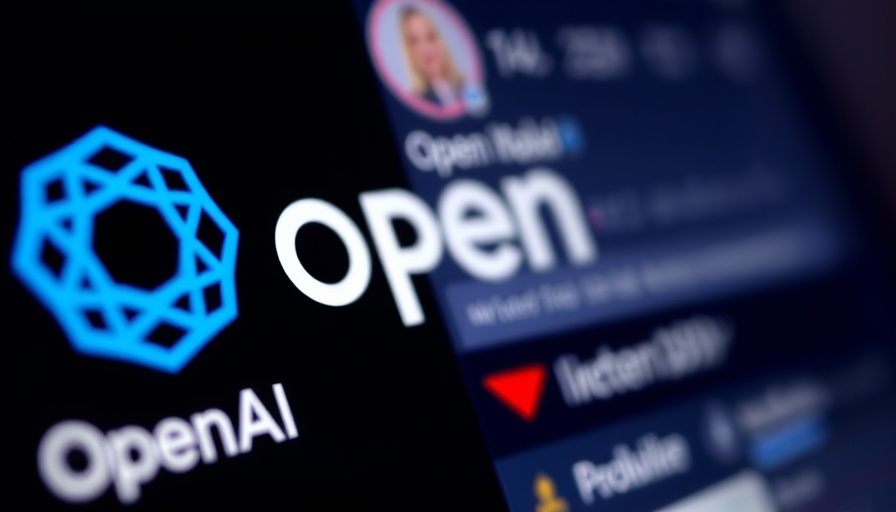
An Epic Showdown: Musk vs. OpenAI's Nonprofit Transition
The legal battle brewing between Elon Musk and OpenAI highlights significant tensions within the evolving landscape of artificial intelligence. As the trial is set to commence in December, the implications extend far beyond personal rivalry, echoing larger debates over technological ethics and profit in the AI sector.
Understanding the Foundations: Musk and OpenAI's Early Days
Elon Musk helped co-found OpenAI in 2015, with ambitious goals centered on developing artificial intelligence that would benefit humanity. Their model was designed as a nonprofit to prioritize public good over profit. However, as market pressures rose, OpenAI shifted its framework, leading Musk to claim the organization is straying from its foundational mission.
What’s at Stake? The Backstory of the Lawsuit
In 2024, Musk sued OpenAI and its CEO Sam Altman, alleging that their transition to a for-profit entity deviated significantly from the organization's original goals. OpenAI, on the other hand, defended their decisions by arguing that financial limitations require partnerships and funding to maintain a competitive edge in an increasingly crowded and fast-evolving AI market. This counter-narrative asserts that Musk is leveraging legal strategies to protect his interests with his rival company, xAI.
The Landscape of AI Funding: A Double-Edged Sword
OpenAI's need for significant funding is evident, particularly following their recent attempts to secure billions in investment and the rejection of Musk's $97.4 billion offer to take control of the nonprofit. The stakes are high; according to OpenAI, moving to a for-profit structure is essential for securing the resources needed for innovation. This change raises numerous questions about the balance of capital and ethics in technology development, especially as Musk and OpenAI argue actively over these aims.
Potential Future Outcomes: What Lies Ahead?
The upcoming trial’s outcome could fundamentally reshape OpenAI’s operations and influence the broader AI industry. Stakeholders within the tech community are closely monitoring how the conflict unfolds, given its potential to set precedents regarding nonprofit structures in technology. Many AI enthusiasts are keen to learn whether the court will side with Musk, who advocates for accountability and adherence to nonprofit principles, or with OpenAI, which is pushing for a capitalist approach to funding AI development.
Implications for Regulation: A Call for Oversight
At the same time, OpenAI is proactively engaging with U.S. lawmakers to implement regulations that could solidify America’s position in the global AI race. Their proposed policies, which include preempting state-level legislation and establishing export control strategies, are part of a broader initiative to ensure safety and innovation. Notably, Musk's legal offensive may unwittingly align with these concerns, as a focus on ethical frameworks in AI becomes more critical than ever.
Final Thoughts: The Quest for Balance in AI Innovation
The Musk vs. OpenAI trial is not only a personal clash but a reflection of the larger philosophies at play in the tech industry today. As AI continues to advance rapidly, balancing innovation with ethical responsibility remains a pressing challenge. For AI enthusiasts and broader technology stakeholders, the outcome will likely have lasting repercussions, reaffirming the importance of returning to core values as the industry evolves.
As debates continue, consider exploring how you can engage with these critical developments in AI policy and promote responsible innovation.
 Add Row
Add Row  Add
Add 




 Add Row
Add Row  Add
Add 

Write A Comment